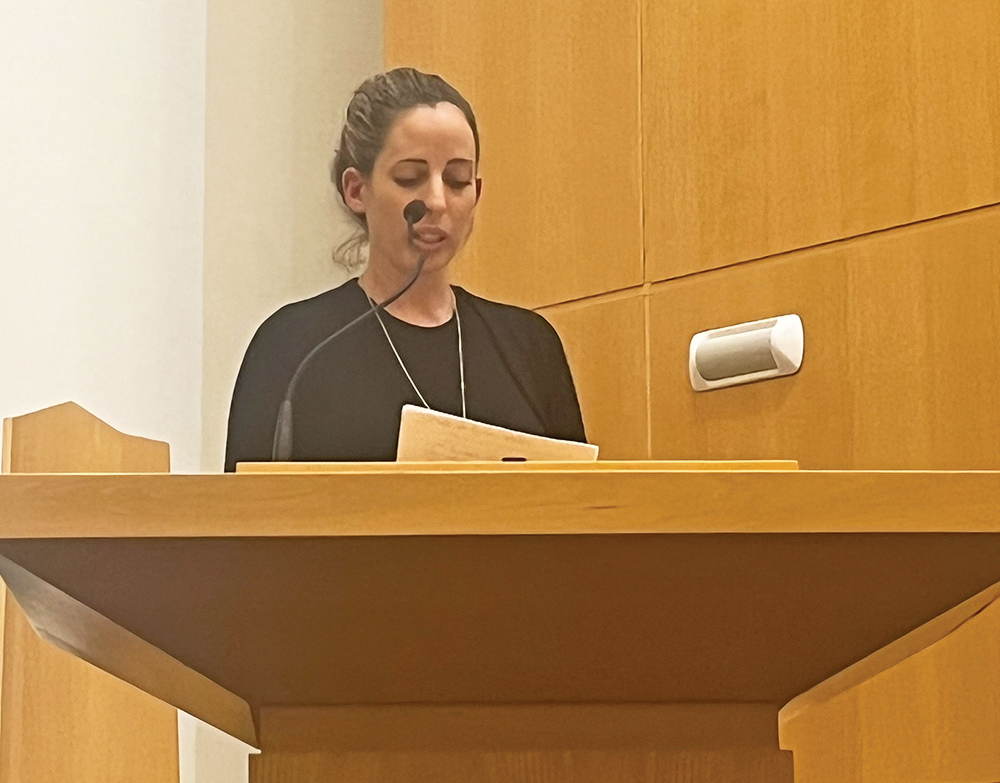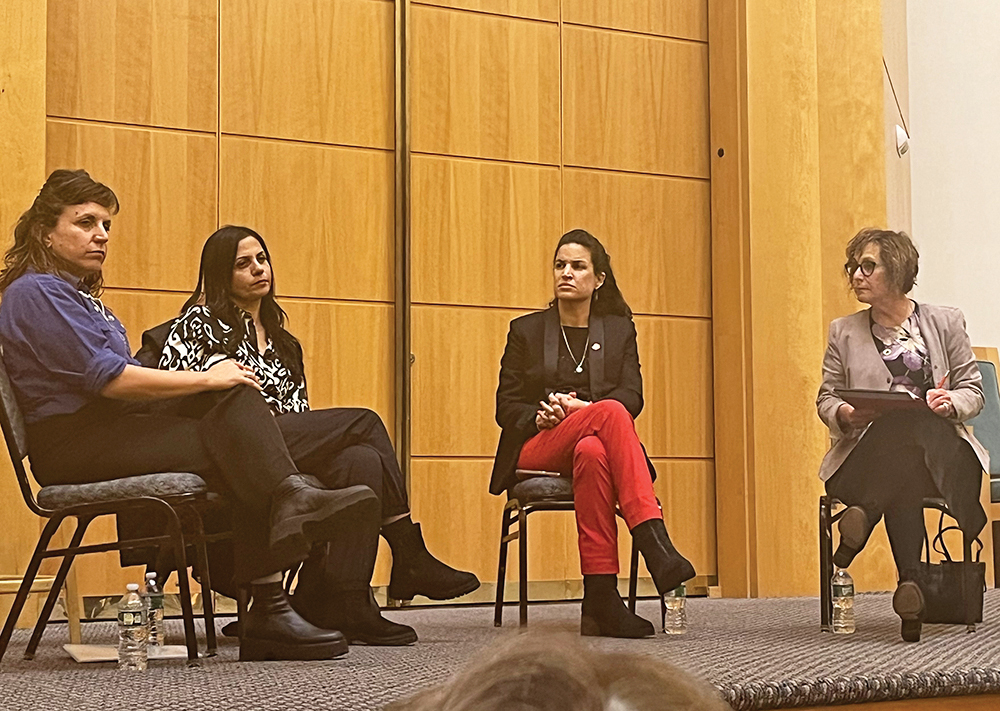
On November 30, the Westchester Jewish Council presented a panel discussion with Israeli women scholars, activists and leaders, titled “Women’s Leadership in Time of War” at Temple Israel Center of White Plains. The panel consisted of Moran Zer Katzenstein, social activist for women’s rights and founder of Bonot Alternativa; Professor Yifat Bitton, legal scholar and activist for equality, focusing on gender and origin; and Ronit Snir, secretary-general of Hashomer Hatzair youth movement. The panel was moderated by Harriet Schleifer, chair of the Conference of Presidents of Major Jewish Organizations.
Shachar Liran-Hanan, the Jewish Agency for Israel’s senior shlicha to Westchester, opened the evening. “The past eight weeks were the hardest I have ever experienced. Throughout the last eight weeks, we have found many sources of light. We saw women combat soldiers who have shown incredible bravery, tactical thinking, physical and emotional strength leading forces, flying airplanes, driving tanks, and operating rescue missions. We found women standing in the forefront of kibbutz security booths, initiated, led, guided, and fought side-by-side with male guards against the terrorists who infiltrated their homes. We found determined and persistent observers in the control room in Nachalat Oz, who gathered intelligence for months, showing evidence for the plans that Hamas finally committed on October 7th. While they could have been announced as the heroes who saved us, they were brutally slaughtered in their service.
“We found women terror victims who used sharp instinct and took action which saved their lives and the lives of many around them. We have women who held their entire households for eight weeks and also kept their jobs while their husbands were called to duty. We witnessed the released hostages who took care of many other hostages. In honor of these women, in memory of some of these women, I am honored to open tonight’s event.”
Schleifer, the moderator, asked the panelists to describe their efforts since October 7. Bonot Alternativa’s Katzenstein explained that her organization has initiated hundreds of projects in 80 cities and opened 50 operation centers. “We are focusing on the economic sphere of women who had their own businesses.”
Legal professor Bitton noted that since October 7, “I realized the most basic underlying principles of human rights and feminist ideas are being shattered in front of my eyes. We were all shocked to learn that so many women and children were taken hostage, being shot, being harmed; [that] made it hell for me as a feminist who has litigated cases for over 20 years for women victims of sexual assault. It was very clear that there was something really horrible that we are unfamiliar with that is going on.

“We reached out to the international community and what we got in response was silence,” said Bitton, adding that higher education is at a standstill and that she is concerned this delay could have ramifications in the labor market.
“Hashomer Hatzair covers 80 kibbutzim, eight of which are in the Gaza envelope,” explained Snir of the youth movement. “When I talk about the October 7 attacks, it’s in a most personal manner; our kibbutzim were severely wounded. With hundreds murdered and kidnapped, it’s hard to describe our terror-struck communities. We see entire communities in hotel lobbies. Adult groups crying, kids running around—nobody knows what to do or how to organize.”
Snir explained one of the first things they did was create an educational framework for the kids, to bring some normalcy to the situation. “It’s important for kids and adults to have their own time to process what they have been through. Some kibbutzim have no homes to return to. They must find another place. Living in a hotel is not really an option.”
Asked what message we need to show the world, Katzenstein replied: “To convince women that you don’t need to choose sides between Israel and Palestine. You just have to agree that what happened to women must not be. Women around the world need to understand that their silence is complacency.”
Bitton said: “We need to show that Israel could not be farther from an apartheid state. Every day brings Arabs and Jews together.” Snir agreed: “Over 70% of Israeli Arabs feel solidarity with Israel in this war, the highest ever, and don’t identify with Hamas’ crimes.”
Schleifer concluded, “This is an existential moment for American Jews to realize how much America needs Israel and for Israelis to understand how much they need Americans.”










